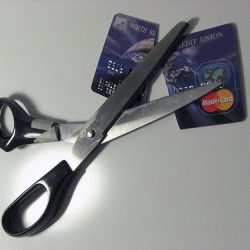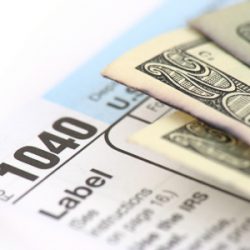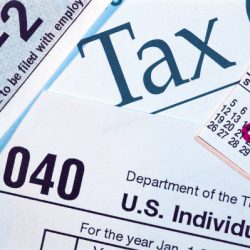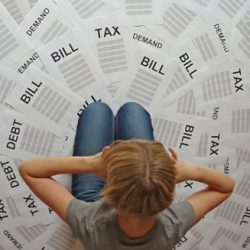You are constantly getting offered new credit card accounts but, it’s important to not have too many. If you open a new account because of a lower interest rate or a promotional offer, you should always close a current account you are no longer using or are replacing. Closing unwanted old credit accounts has many benefits including:
Helps to keep track of credit cards
Lowers the amount of revolving debt, helping you qualify for more loans
Keeps your credit report cleaner
Helps you avoid unnecessary fees
Prevents identity theft
To help you understand what you should and should not do when closing old credit card accounts, here are a ...
Read More...
Which is Right For Me: A Credit Card, Charge Card or Debit Card?
The answer to this question all depends on how you intend on using it. Many assume the term “charge card” is interchangeable with “credit card,” when they are very different. In the simplest terms, credit cards allow you to carry debt every month but charge cards don’t – they require full payment every month. Therefore, you can’t use them to get into debt. You also cannot get into debt with a debit card, which is linked directly to your bank account. Basically, you can only spend with you have. Here are the highlights of all three:
CHARGE CARDS:
Charge cards are a good option for people who want the convenience of using plastic but know ...
Read More...
How the New York Exemptions Increases Will Effect Your Tax Refund in a Bankruptcy
Effective January 22, 2011, New Yorkers filing for bankruptcy will have the added benefit of higher bankruptcy exemptions. The major change is thanks to Governor David Patterson, who signed the bill into law (his last while in office) just before Christmas last year.
Exemptions are the legislative tools that a debtor uses to protect their property when they file for bankruptcy. The purpose of exemptions is to assure that debtors are able to continue living a productive economic life. If a debtor loses all of their belongings when they file bankruptcy, they will have a more difficult time getting back on their feet. The more property that ...
Read More...
Eliminating Taxes: What Taxes are Dischargeable in Bankruptcy?
It is commonly misunderstood that bankruptcy cannot eliminate any tax liability. Although treatment of tax liability is one of the most complex aspects of consumer bankruptcy law, the Bankruptcy Code does offer many debtors substantial income tax relief. Whether or not your bankruptcy filing relieves your tax debt depends on several factors including the nature and the status of tax liability and the type of bankruptcy proceeding. Remember, only individuals can discharge certain tax debts, not businesses.
An individual can discharge debts for taxes in Chapter 7 bankruptcy only if all of the following conditions are true:
They are only ...
Read More...
8 Tips for Coping with Stress and Anxiety About Debt
Does your debt feel like it is taking over your life? Has it caused you to lose sleep? Is it causing tension or arguments with your loved ones? I recently wrote a post addressing some of the things you can do to overcome debt anxiety. Here are eight tips that should help you cope with your debt and allow you to deal with the emotional and mental issues it causes.
Accept that your debt is a problem - Before you can truly tackle your debt and the associated stress and anxiety, you need to admit that it is a problem. Debt creeps up on many people, building slowly over time. Your debt may have grown from a small, manageable amount into ...
Read More...
Getting Relief from Anxiety about Credit Card Debt
Anyone who has found themselves behind on their bills knows how overwhelming the anxiety about debt can be. Just missing one payment can send your finances in a downward spiral of only paying off interest and fees and never making actual headway on the balance. Many experience anxiety about their current finances and don’t know who to ask for help with their stacks of bills. There are a number of ways to get relief from debt anxiety, and this week on my blog, Facebook and Twitter, I will be addressing the steps to make an informed decision about your finances when you find yourself in this situation.
The first thing to consider if you are ...
Read More...
7 Ways Deal with an Online Shopping Addiction
Many Americans have discovered the ease and convenience of shopping their favorite retailers online and it has led to a rise in online shopping addiction. For some people it is the thrill of shopping, and online shopping is an even faster way to satisfy their craving to shop. For others, it is a way to feel good about themselves or reward themselves. The consequences of the spending spree might not catch up with them for weeks or months, until they can't pay their credit card bill and finally discover just how much they have been spending.
So what can people do if they think that they have an online shopping addiction?
REVIEW: Review your ...
Read More...
12 Signs of a Compulsive Debtor
According to the Federal Reserve, the average credit card debt per American household is almost $16,000, with almost 610 million credit cards held by U.S. consumers in 2009. With each cardholder having an average of 3.5 credit cards, it is no surprise that chapters of Debtors Anonymous are popping up all over the country. Their 12-step program is patterned after Alcoholics Anonymous, and helps members recover from “compulsive debting” and lead happier, healthier lives.
According to Debtors Anonymous, the 12 signs of a compulsive debtor are:
Being unclear about your financial situation: Not knowing account balances, monthly expenses, loan ...
Read More...
Want to be Debt Free? Stop Procrastinating!
My topic of discussion this week is procrastination. In my last post, I discussed the ramifications of waiting too long to file bankruptcy. The same advice goes for anything to do with your finances. Even though there's a little procrastinator in all of us, there's a difference between putting off doing the laundry or washing the car and putting off paying your bills on time. While its understandable that you would want to put off something you don’t want to do, procrastinating with your finances till tomorrow will almost always hurt your credit score today. Luckily, you can live in the financial present and break the habit of ...
Read More...
Have You Waited Too Long to File Bankruptcy?
Most clients that come see me for a consultation tell me that they feel like bankruptcy is their last resort. However, this really isn’t true. Bankruptcy can protect your property from creditors. A last minute decision to file will limit your options and if you wait too long to file, you may lose property you otherwise could have saved.
Here are six signs you may have waited too long to see a bankruptcy attorney:
FORECLOSURE: After your home has been sold at foreclosure sale, it is too late to cure the arrearage and reinstate your mortgage in Chapter 13 bankruptcy.
REPOSESSION: If your car has been repossessed by the lender, it may be ...
Read More...
- « Previous Page
- 1
- …
- 15
- 16
- 17
- 18
- 19
- …
- 21
- Next Page »






 What Makes Me Different From the Others?
What Makes Me Different From the Others?